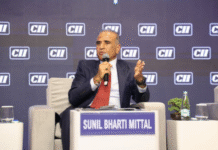New Delhi–The Union Cabinet on Wednesday gave its sanction for the major changes in the foreign direct investment policy approved in June and designed to liberalise norms by increasing FDI to 100 per cent in defence and further ease the regime in many other sectors.
“The FDI policy amendments are meant to liberalise and simplify the FDI policy so as to provide ease of doing business in the country leading to larger FDI inflows contributing to growth of investment, incomes and employment,” said a Commerce Ministry release here.
The changes introduced in the policy included increase in sectoral caps, bringing more activities under automatic route and easing of conditionalities for foreign investment.
According to the changed norms, FDI in defence sector is now permitted up to 100 per cent, while earlier 49 per cent FDI was permitted under the automatic route. FDI above 49 per cent was permitted through approval on a case-by-case basis, wherever it was likely to result in access to state-of-the-art technology.
Hundred per cent FDI under the automatic route has been allowed in brownfield airport projects, with a view to aid in modernisation of existing airports.
For single-brand retail trading, norms of local sourcing have been relaxed for up to three years with prior government approval for entities trading in products having state-of-the-art and “cutting edge” technology.
The FDI ceiling in sectors like teleports, Direct to Home (DTH), cable networks, mobile TV and Headend-in-the Sky Broadcasting Service (HITS) has been increased to 100 per cent.
For the pharmaceutical sector, new liberalised norms allow 74 per cent FDI under the automatic route for brownfield pharmaceuticals, while FDI beyond 74 per cent would be permitted through the government approval route.
Further, 100 per cent FDI under the automatic route for trading, including through e-commerce, has been permitted for food products manufactured or produced in India.
In case of private security agencies, FDI up to 49 per cent is now permitted under the automatic route, and beyond that and up to 74 per cent by way of government approval.
The latest FDI liberalisation has resulted in increased FDI inflows at $55.46 billion in 2015-16, as against $36.04 billion in 2013-14, the statement said.
“This is the highest-ever FDI inflow for a particular financial year,” it said.
“However, it was felt that the country has potential to attract far more foreign investment which can be achieved by further liberalising and simplifying the FDI regime,” it added.






